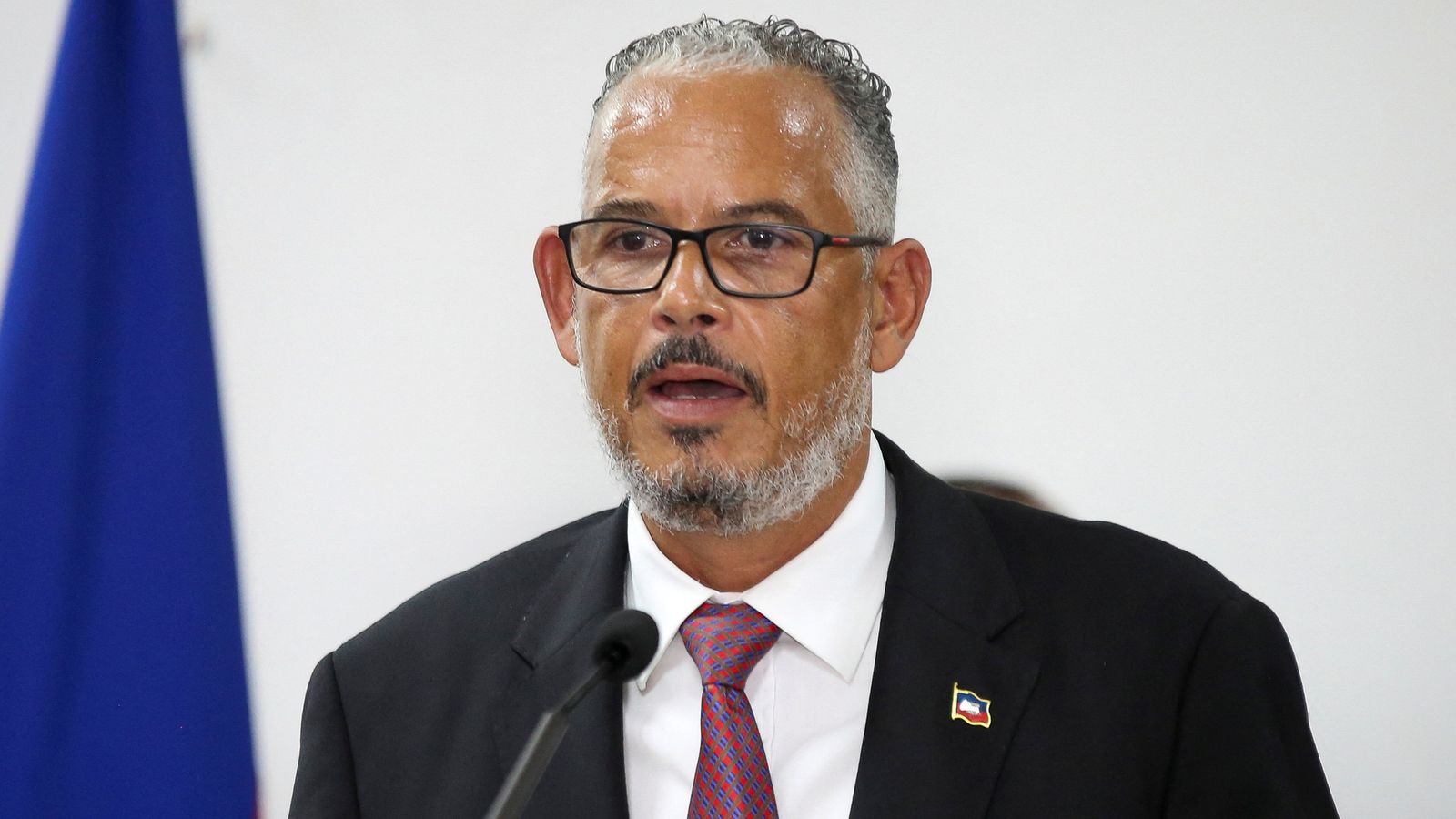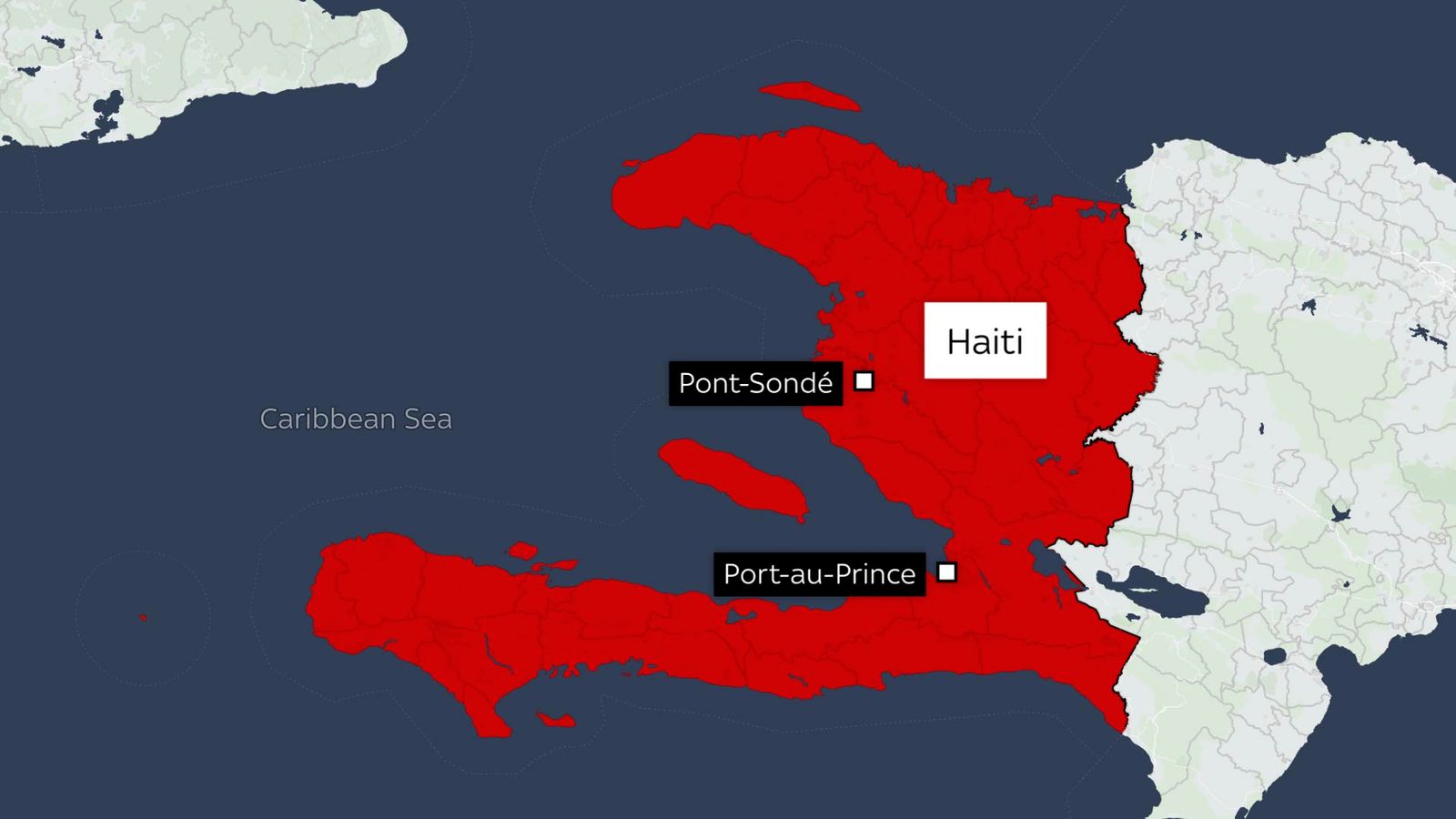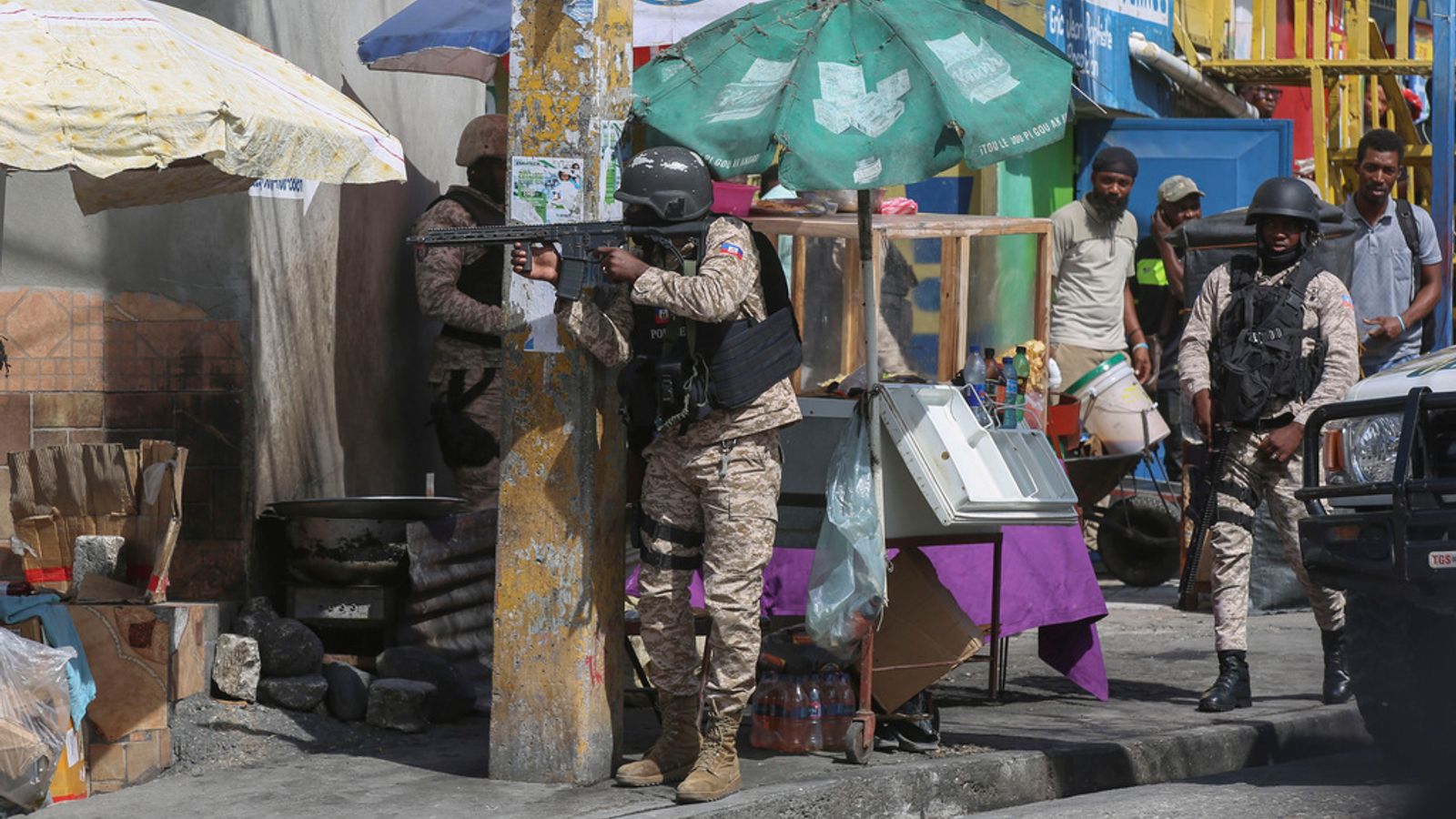Haiti, a nation beleaguered by years of political instability, economic turmoil, and social unrest, is now facing one of its most precarious challenges: a violent surge in gang activity that has infiltrated nearly every aspect of daily life, from the streets to the skies. In a shocking escalation, gangs have begun targeting commercial flights in and out of the capital, Port-au-Prince, with two recent incidents of gunfire striking planes, placing both passengers and crew in imminent danger. These attacks underscore the severity of Haiti’s security crisis, which has taken root in the nation’s capital and spread to key infrastructure and regions, largely unchecked by the state.
This dangerous atmosphere has set the stage for a new interim leader, Alix Didier Fils-Aime, who has taken office with a promise to restore order and security. However, with Haiti’s gangs controlling over 80% of Port-au-Prince and wielding influence over vital routes and public institutions, this pledge is an uphill battle. The latest events reflect not only a worsening gang problem but also a broader national crisis, as Haitians face restrictions on movement, access to essential services, and overall safety. Restoring stability in Haiti, once dubbed the “Pearl of the Antilles,” requires swift action, diplomatic support, and a comprehensive approach to curtailing gang violence.
A New Dimension of Gang Violence
The recent gunfire attacks on commercial flights mark a chilling escalation in Haiti’s gang violence. A Spirit Airlines flight, approaching Port-au-Prince from Fort Lauderdale, was struck by gunfire mere moments before landing. The incident injured a flight attendant and caused substantial alarm among passengers. A subsequent incident involving a JetBlue flight departing Haiti for New York further highlighted the risks, as a bullet struck the aircraft’s exterior during takeoff.
These incidents prompted a temporary suspension of flights to and from Haiti’s main airport, Toussaint Louverture International, due to the heightened risk of gang attacks. Toussaint Louverture, a crucial entry and exit point for the country, has been intermittently targeted by gangs seeking to exploit Haiti’s political instability. With their power base extending to 80% of the capital, gangs now see international airports as viable targets in their pursuit of control.
The implications of gangs attacking commercial airspace extend far beyond the immediate physical risk to passengers and crew. These actions reveal a dangerous erosion of state authority and a growing capacity among gangs to disrupt essential national infrastructure. Each such incident further isolates Haiti from the international community, disrupts travel and trade, and heightens fears among potential investors and international partners.
An Embattled Government Struggles for Control
The emergence of Alix Didier Fils-Aime as Haiti’s interim leader underscores the revolving-door nature of Haitian politics, particularly as gang violence complicates leadership transitions. Fils-Aime’s predecessor, Garry Conille, held office for only six months before being ousted, reflecting the challenges of governing amidst the violent grip of gangs. Fils-Aime has vowed to prioritize security, reinstating peace and preparing the nation for long-overdue elections. Yet, as of now, the government’s ability to execute these pledges remains tenuous.
Haiti’s gangs have become a significant power in the country’s political landscape, dictating the terms of governance in areas under their control. They exert control not only over neighborhoods and local communities but also over critical infrastructure, including roads, police stations, and even prisons. Earlier this year, a violent gang offensive forced former Prime Minister Ariel Henry to resign. The attack demonstrated the power these groups wield, successfully targeting government buildings and security institutions. Since then, the situation has deteriorated, with police stations falling under gang control, high-profile massacres, and attacks on international personnel, including a United Nations helicopter.
The pervasive gang influence in Port-au-Prince and beyond poses a major challenge to any government’s capacity to implement meaningful change. Fils-Aime’s administration must contend with a well-armed, highly organized network of gangs with financial resources, political connections, and the support of communities that see them as a necessary, if dangerous, alternative to the state.

Gang-Controlled Capital and Its Implications for National Security
Haiti’s security landscape is fundamentally shaped by the gangs that control approximately 80% of Port-au-Prince. In the absence of strong government oversight, gangs fill a void, establishing their own rules and often exploiting local populations. Neighborhoods controlled by gangs are typically isolated from government services, with residents subject to gang-enforced “laws” and extorted for basic needs such as water, electricity, and safety.
These territories are strategic assets, allowing gangs to secure access to supply routes and exert control over commerce. They serve as hubs for trafficking in arms, drugs, and even human smuggling, with routes often leading through Port-au-Prince’s international airport and ports. Such activities not only enrich gang leaders but also undermine Haiti’s prospects for stability and economic growth.
International aid and support are essential, but given the levels of violence and instability, humanitarian assistance and relief efforts are frequently obstructed or redirected by gangs. Consequently, food shortages, lack of medical services, and limited mobility compound the suffering of ordinary Haitians. The social and economic toll is immense, as businesses shut down, the educational system falters, and families find it increasingly difficult to survive in an environment rife with violence.
Challenges to Restoring Security and Stability
For Alix Didier Fils-Aime, restoring security in Haiti is a daunting task that requires addressing the structural factors that have allowed gangs to flourish. The inability of Haitian law enforcement to contain gang violence is rooted in years of corruption, inadequate training, and insufficient resources. Police forces are often outgunned by gangs, who have access to high-caliber firearms and are strategically embedded within communities, making them difficult to dislodge without risking civilian lives.
Moreover, Fils-Aime’s task is complicated by the fractured nature of Haitian politics. The country has not held an election since 2016, leaving a vacuum in political representation and accountability. Without a functioning legislative framework, the current administration faces significant obstacles in implementing the reforms needed to address the gang crisis comprehensively.
To restore order, Haiti will need robust, well-coordinated international support aimed at enhancing police capabilities, investing in community resilience, and supporting economic opportunities for at-risk populations. Additionally, the government must initiate dialogue with civil society leaders, local community groups, and even former gang members to understand and address the root causes of gang influence. Without this multidimensional approach, any attempt to restore security is likely to be short-lived.

Impact on Regional Stability and International Relations
Haiti’s current situation has ramifications for regional stability, particularly in the Caribbean and the Americas. As gangs continue to destabilize the nation, there is a growing risk of increased out-migration, both through legal and illegal means. The United States, Canada, and nearby Caribbean nations are already grappling with Haitian migrant inflows, which strain their immigration systems and social services. The violence in Haiti further complicates international relations, as neighboring countries must balance their humanitarian obligations with domestic political pressures.
The U.S. Embassy in Haiti has warned American citizens against travel to Haiti and has ramped up security for diplomatic personnel. The recent gunfire incidents have only intensified the urgency of addressing Haiti’s security crisis, with concerns about the safety of international travel to and from the country. The instability also jeopardizes foreign investment in Haiti, which remains one of the most impoverished nations in the Western Hemisphere. In the absence of security, few investors are willing to risk capital in a country where basic safety cannot be guaranteed.
International Support and Potential Solutions
Haiti’s security crisis calls for a strong, coordinated response from the international community. As gangs continue to grow in power, it becomes increasingly clear that Haiti cannot resolve this issue alone. The United Nations, regional organizations like the Organization of American States (OAS), and other international stakeholders must consider more direct involvement to help restore stability in Haiti. Options include deploying peacekeeping forces, training and equipping Haitian law enforcement, and providing technical assistance for intelligence gathering and crime prevention.
However, any international intervention must be mindful of Haiti’s complex political history and the often-contentious relationship between Haitians and foreign forces. A heavy-handed approach could worsen the situation by alienating the Haitian population and driving further support toward gangs. Instead, a collaborative approach that includes local leaders, civil society, and community organizations may prove more sustainable.
Economic assistance should also be a priority, targeting job creation, education, and infrastructure development in gang-controlled areas. Creating opportunities for youth can help reduce the appeal of gangs, which often recruit young men who see few viable alternatives for economic advancement. Community-based programs that provide vocational training, microfinance options, and small-business support can contribute to long-term resilience against gang influence.

Haiti’s security situation is a stark reminder of the challenges facing a nation where political instability, economic hardship, and social unrest converge to create a climate of perpetual crisis. With gangs now extending their reach to the skies, targeting commercial flights and seizing control of critical infrastructure, the stakes are higher than ever for Haiti’s new interim leader, Alix Didier Fils-Aime. His pledge to restore peace is commendable, yet he faces an uphill battle against entrenched gangs that have taken advantage of the nation’s vulnerabilities.
The recent attacks on commercial flights serve as a grave warning: without decisive action, both domestically and from the international community, Haiti risks further isolation and escalating violence. The path forward demands a multifaceted approach, combining security measures with social and economic initiatives that address the underlying causes of gang power.
The international community has a role to play, and its support will be crucial. But true change must come from within Haiti, with a government that can win back the trust of its people and provide a viable alternative to gang rule. Only then can Haiti hope to break free from the stranglehold of violence and embark on a path to stability, security, and prosperity.



